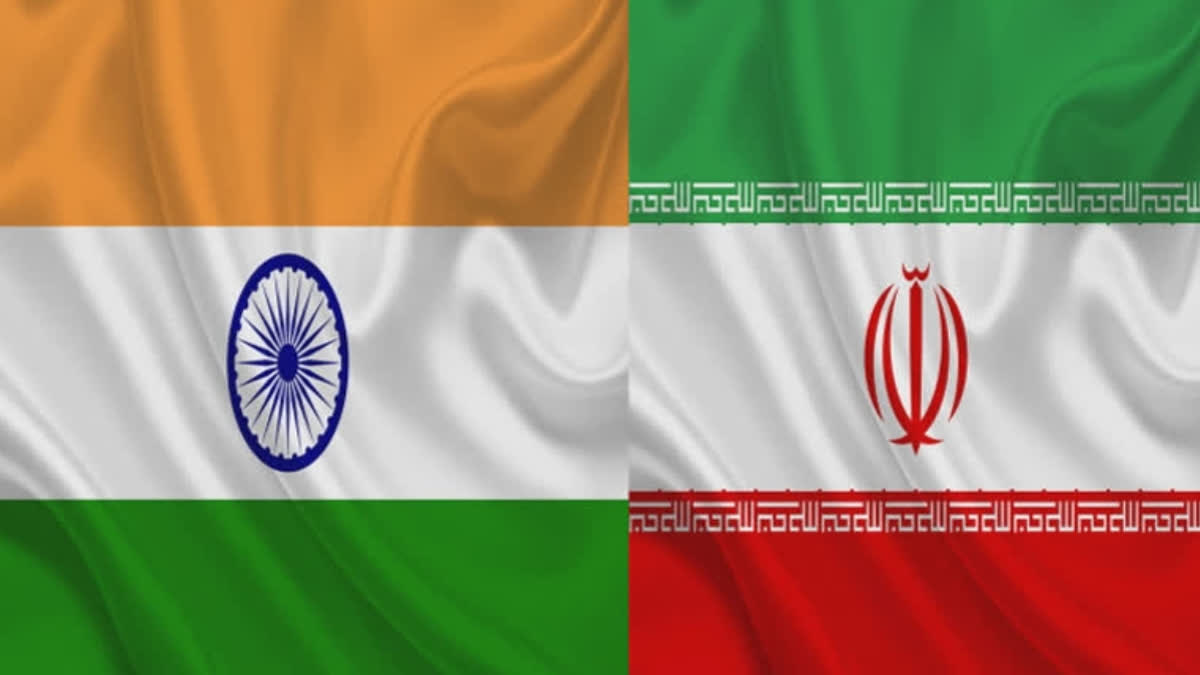New Delhi: India recently issued a sharp rebuke in response to remarks made by Iran's Supreme leader, Ayatollah Ali Khamenei, regarding the sufferings of minorities in India. The Ministry of External Affairs (MEA) has strongly criticised the comment calling it 'misinformed and unacceptable'
The MEA said, "We strongly deplore the comments made regarding the minorities in India by the Supreme Leader of Iran. These are misinformed and unacceptable. Additionally, the ministry advised nations criticising India for mistreating minorities to examine their own human rights records before passing judgment. Countries commenting on minorities are advised to look at their record before making any observations about others."
This heated exchange of words is significant, given the India-Iran relations. India-Iran relations have been shaped by centuries of shared history, culture, and trade. Recently, the relationship has continued to be multifaceted, involving political, economic, and strategic dimensions. One key element that has gained prominence recently is the Chabahar Port in Iran, which plays a pivotal role in their bilateral ties.
Chabahar Port is located on the southeastern coast of Iran, in the Gulf of Oman, near the Strait of Hormuz. It is Iran's only oceanic port and provides direct access to the Indian Ocean. For India, the port holds immense strategic and economic significance, as it offers a direct route to Afghanistan and Central Asia, bypassing Pakistan. This reduces India's dependency on routes through Pakistan for trade with landlocked Afghanistan and Central Asia.
India has invested in Chabahar as part of its efforts to access Afghanistan and Central Asian markets. The port provides India with an alternative to the Gwadar Port in Pakistan, a part of China’s Belt and Road Initiative (BRI). Chabahar allows India to bypass Pakistan’s territory and avoid reliance on Pakistan for overland trade routes. With China's strategic presence in Pakistan through Gwadar and the BRI, Chabahar serves as India's response, providing a counterbalance to Chinese influence in the region.
However, the timing of Iran's supreme leader's remarks on India has raised questions. What does this spat mean for India-Iran relations?
India's former ambassador to Jordan, Libya and Malta, Anil Trigunayat told ETV Bharat that as of now the reasons and timing of comments made against India clubbing with the plight of Muslims in Gaza by Ayatollah Khamenei defy any logic except a reflection of their insecurities given the socio-economic discontent within Iran.
"Bilateral relationship has continued to grow despite various geopolitical headwinds but such irrational, uninformed and unwarranted comments and interference in internal affairs of India does not augur well and has already invoked the response from the Indian Foreign ministry. However, I would assume that the Chabahar and other dimensions of bilateral and regional cooperation will continue apace and the requisite course correction will follow more maturely", Trigunayat said.
Meanwhile, commenting on the recent tensions between India and Iran, Meena Singh Roy, former research fellow and head of the West Asia Centre in Manohar Parrikar Institute for Defence Studies and Analyses (MP-IDSA), said, "The timing of Khamenei's remarks was surprising and what's more surprising was the comparison made with the situation in Gaza. This is the time when India was trying to improve its ties with Iran despite the pressure from the United Nations as far as sanctions are concerned."
"The current Indian government seriously wants to see to it that the connectivity gets a push through Chabahar and INSTC (International North South Transport Corridor). There have been various efforts which were going on but a statement like this has surprised the international community. This is unacceptable. Also previously, no single statement was made by the Iranian Supreme leader on Chinese Uyghur Muslims. So how does a supreme leader fail to mention Chinese Yughur minorities in any of his statements? Fair enough India's foreign policy towards Israel has been a De-Hyphenated foreign policy but India has always supported the Palestinian cause. So, I don't see any reason why Iran's supreme leader has come up with such a statement. Is there a larger game or the supreme leader is trying to impress China or Russia for that matter? India has always maintained good relations with Iran as well as Russia despite Russia-China or Iran-China cooperation," added Meena Singh Roy.
She pointed out that India-Iran relations will be affected if this continues. "In international relations, the individual country has to respect the certain sensitivity which is part and parcel of anybody's internal matter", she added.
India and Iran have consistently upheld strong bilateral relations, even during periods of political unrest. In May, Indian Vice President Jagdeep Dhankar paid a visit to Iran to express condolences following the passing of prominent Iranian leaders, including former President Ebrahim Raisi. A mere two months later, Union Minister Nitin Gadkari attended the inauguration of Iran’s new President, Masoud Pezeshkian, underscoring the ongoing diplomatic commitment between the two nations.
Read More



